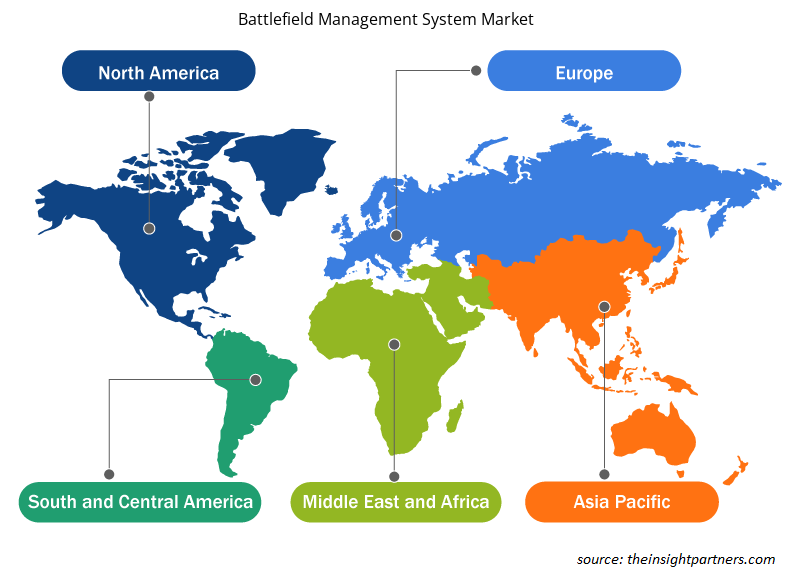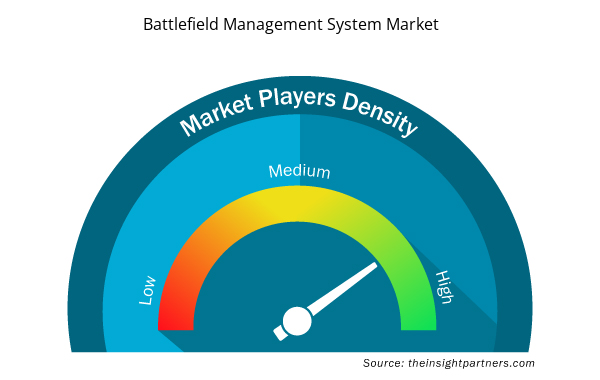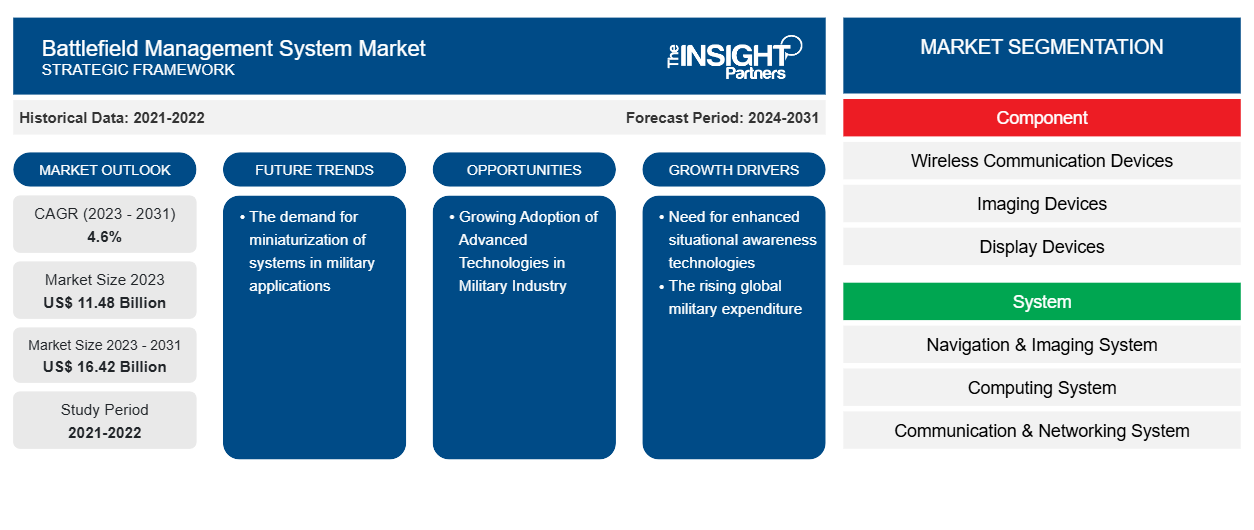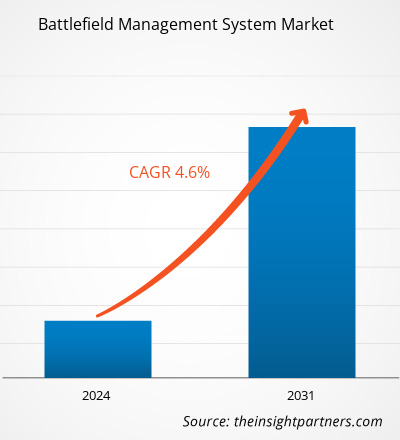戦場管理システムの市場規模は、2023 年の 114.8 億米ドルから 2031 年には 164.2 億米ドルに達すると予測されています。市場は 2023 年から 2031 年にかけて 4.6% の CAGR を記録すると予想されています。軍事用途のシステムの小型化の需要は、今後も市場の主要なトレンドであり続けると思われます。
戦場管理システム市場分析
市場には、主にソフトウェア開発者、システム開発者、システム インテグレーター、エンド ユーザーが含まれます。市場プレーヤーは主に、Atos、Systematic、Rolta などのソフトウェア開発者で構成されており、技術的な専門知識を通じて戦場管理用のソフトウェア ベースのソリューションを提供しています。システム開発者は、さまざまな軍隊からコンタクトを得ることでこの市場の先駆者となっているハードウェア メーカーです。ソフトウェア開発者とシステム開発者は同期して動作します。システムとソフトウェアが開発されると、システム開発者はソリューションをシステム インテグレーターに渡し、システム インテグレーターは最終的にソフトウェアをシステムに統合し、BMS を軍隊に提供します。さまざまなシステム開発者もシステム インテグレーターとして動作し、システム全体を直接エンド ユーザーに提供します。エンド ユーザーは世界中のさまざまな軍隊で構成され、市場の需要側を表しています。
戦場管理システム市場の概要
現在、戦場管理システム市場は、大規模な顧客基盤を持つ大手の確立された市場プレーヤーで構成されています。さらに、参入障壁が高く、政府が以前の長期ビジネス契約に報いる傾向があるため、戦場管理システム市場への新規参入者による脅威も低くなっています。ただし、最近の予算削減と、優れた物流計画、管理、運用の需要の急増により、特定の物流サービスの障壁が緩和されると予想されます。たとえば、コンサルティング、最適化、高度なテクノロジーの統合とサポート、およびその物流サポートなどの強化された物流関連サービスの機会は、今後数年間で参入障壁を中程度にすると予想されます。
要件に合わせてレポートをカスタマイズする
このレポートの一部、国レベルの分析、Excelデータパックなど、あらゆるレポートを無料でカスタマイズできます。また、スタートアップや大学向けのお得なオファーや割引もご利用いただけます。
- このレポートの主要な市場動向を入手してください。この無料サンプルには、市場動向から見積もりや予測に至るまでのデータ分析が含まれます。
戦場管理システム市場の推進要因と機会
状況認識技術の強化の必要性
戦闘中は、状況認識や位置認識が最も重要です。戦場では、状況認識にいくつかの課題があり、下車した兵士や車両に大きな脅威をもたらします。これは、敵や過激派が高度な技術を使用しているため、軍隊にとって意思決定の際に困難な状況が生じるためです。BMS の主な目的は、兵士が迅速に考え、行動できるようにすることで、このような課題を効率的に克服することです。BMS は、特に敵の追跡可能性が低い状況で、状況認識を高めると考えられています。特に戦場で、チームの活動に関する情報の重要な要素を認識し、理解するのに役立ちます。
軍事産業における先進技術の導入拡大
世界中の軍事部門は、さまざまな技術の進歩を通じて、陸、空、海の能力を向上させることを目指しています。国境を越えた活動の増加や国境を越えた避けられない状況には、高度な技術システムが求められています。人工知能(AI)は、武器、ドローン、その他の製品と統合されると、軍事部門で大きな役割を果たします。AIの研究は、情報収集と分析、指揮統制、さまざまな車両の分野で進行中であり、シリアとイラクでの軍事作戦に組み込まれています。中国は防衛能力を最適化するためにAIに賭けており、2030年までにAI分野の世界的リーダーになると予測されています。現在、中国はAIを使用して十分な情報に基づいた迅速な意思決定を行うことと、さまざまな自律型軍用車両の構築に重点を置いています。ロシアも軍事技術へのAIの統合に積極的であり、ロボット工学に重点を置いています。このような要因は、今後数年間で将来の機会を提供する可能性があります。
戦場管理システム市場レポートのセグメンテーション分析
戦場管理システム市場分析の導出に貢献した主要なセグメントは、コンポーネント、システム、およびアプリケーションです。
- コンポーネントに基づいて、戦場管理システム市場は、無線通信デバイス、イメージングデバイス、ディスプレイデバイス、コンピューターソフトウェア、追跡デバイスに分類されます。無線通信デバイスセグメントは、2023年に大きな市場シェアを占めました。
- システムに基づいて、戦場管理システム市場は、ナビゲーションおよびイメージングシステム、コンピューティングシステム、通信およびネットワークシステムに分割されています。通信およびネットワークシステムセグメントは、2023年に大きな市場シェアを占めました。
- アプリケーションに基づいて、戦場管理システム市場は車両、兵士、本部に分類されます。本部セグメントは2023年に大きな市場シェアを占めました。
戦場管理システムの地域別市場シェア分析
戦場管理システム市場レポートの地理的範囲は、主に北米、ヨーロッパ、アジア太平洋、中東およびアフリカ、南米の 5 つの地域に分かれています。
2023年には北米が市場を支配し、ヨーロッパとアジア太平洋地域がそれに続きます。さらに、アジア太平洋地域は今後数年間で最高のCAGRを記録する可能性もあります。2023年、北米の戦場管理システム市場は米国が支配しました。これは、最大の軍事支出国である米国の存在によるもので、戦場管理システム市場で活動している主要企業の一部も含まれています。北米の戦場管理システム市場に参入している主要企業には、BAE Systems Plc、General Dynamics Corporation、Raytheon Technologies Corporation、L3Harris Technologies Inc、Lockheed Martin Corporation、Northrop Grumman Corporationなどのベンダーが含まれます。
戦場管理システム市場レポートの範囲
戦場管理システム市場の地域別分析
予測期間を通じて戦場管理システム市場に影響を与える地域的な傾向と要因は、Insight Partners のアナリストによって徹底的に説明されています。このセクションでは、北米、ヨーロッパ、アジア太平洋、中東およびアフリカ、南米および中米にわたる戦場管理システム市場のセグメントと地理についても説明します。

- 戦場管理システム市場の地域別データを入手
戦場管理システム市場レポートの範囲
| レポート属性 | 詳細 |
|---|---|
| 2023年の市場規模 | 114.8億米ドル |
| 2031年までの市場規模 | 164.2億米ドル |
| 世界のCAGR(2023年~2031年) | 4.6% |
| 履歴データ | 2021-2022 |
| 予測期間 | 2024-2031 |
| 対象セグメント | コンポーネント別
|
| 対象地域と国 | 北米
|
| 市場リーダーと主要企業プロフィール |
|
戦場管理システム市場のプレーヤー密度:ビジネスダイナミクスへの影響を理解する
戦場管理システム市場は、消費者の嗜好の変化、技術の進歩、製品の利点に対する認識の高まりなどの要因により、エンドユーザーの需要が高まり、急速に成長しています。需要が高まるにつれて、企業は提供を拡大し、消費者のニーズを満たすために革新し、新たなトレンドを活用し、市場の成長をさらに促進しています。
市場プレーヤー密度とは、特定の市場または業界内で活動している企業または会社の分布を指します。これは、特定の市場スペースに、その市場規模または総市場価値に対してどれだけの競合相手 (市場プレーヤー) が存在するかを示します。
戦場管理システム市場で活動している主要企業は次のとおりです。
- BAEシステムズ
- エルビットシステムズ株式会社
- ゼネラル・ダイナミクス・コーポレーション
- L3ハリステクノロジーズ
- レオナルド SpA
- レイセオンテクノロジーズ株式会社
免責事項:上記の企業は、特定の順序でランク付けされていません。

- 戦場管理システム市場のトップキープレーヤーの概要を入手
戦場管理システム市場のニュースと最近の動向
戦場管理システム市場は、主要な企業出版物、協会データ、データベースを含む一次調査と二次調査後の定性的および定量的データを収集することによって評価されます。戦場管理システム市場におけるいくつかの開発を以下に示します。
- ロッキード・マーティン・オーストラリアは、AIR6500フェーズ1(AIR6500-1)プロジェクトの一環として、オーストラリアの将来の統合航空戦闘管理システムを構築するため、国防省と5億オーストラリアドルの画期的な契約を締結しました。このシステムは、次世代技術を使用して、高速脅威に対抗するための高度な統合航空およびミサイル防衛能力を国防省に提供します。(出典:ロッキード・マーティン・コーポレーション、プレスリリース、2024年4月)
- 国防省(MOD)は、小型偵察ドローン、戦闘車両、戦闘機、航空母艦、軍司令部を結び、軍人のための最前線の接続性を強化するため、BAEシステムズに8,900万ポンドの契約を授与した。(出典:BAEシステムズ社、プレスリリース、2023年8月)
戦場管理システム市場レポートの対象範囲と成果物
「戦場管理システム市場規模と予測(2021〜2031年)」レポートでは、以下の分野をカバーする市場の詳細な分析を提供しています。
- 対象範囲に含まれるすべての主要市場セグメントについて、世界、地域、国レベルでの戦場管理システム市場規模と予測
- 戦場管理システム市場の市場動向、および推進要因、制約、主要な機会などの市場動向
- ポーターのファイブフォース分析の詳細
- 主要な市場動向、世界および地域の枠組み、主要プレーヤー、規制、最近の市場動向を網羅した戦場管理システム市場分析
- 戦場管理システム市場の市場集中、ヒートマップ分析、主要プレーヤー、最近の動向を網羅した業界の状況と競争分析
- 詳細な企業プロフィール
- 過去2年間の分析、基準年、CAGRによる予測(7年間)
- PEST分析とSWOT分析
- 市場規模価値/数量 - 世界、地域、国
- 業界と競争環境
- Excel データセット



Report Coverage
Revenue forecast, Company Analysis, Industry landscape, Growth factors, and Trends

Segment Covered
This text is related
to segments covered.

Regional Scope
North America, Europe, Asia Pacific, Middle East & Africa, South & Central America

Country Scope
This text is related
to country scope.
よくある質問
North America region dominated the battlefield management system market in 2023.
Need for enhanced situational awareness technologies and the rising global military expenditure are some of the factors driving the growth for battlefield management system market.
The demand for miniaturization of systems in military applications is one of the major trends of the market.
BAE Systems Plc, Elbit Systems Ltd, General Dynamics Corporation, L3Harris Technologies Inc, Leonardo SpA, Raytheon Technologies Corporation, Rheinmetall AG, Lockheed Martin Corporation, SAAB AB, and Thales Group are some of the key players profiled under the report.
The estimated value of the battlefield management system market by 2031 would be around US$ 16.42 billion.
The battlefield management system market is likely to register 4.6% during 2023-2031.
Trends and growth analysis reports related to Aerospace and Defense : READ MORE..
The Insight Partners performs research in 4 major stages: Data Collection & Secondary Research, Primary Research, Data Analysis and Data Triangulation & Final Review.
- Data Collection and Secondary Research:
As a market research and consulting firm operating from a decade, we have published and advised several client across the globe. First step for any study will start with an assessment of currently available data and insights from existing reports. Further, historical and current market information is collected from Investor Presentations, Annual Reports, SEC Filings, etc., and other information related to company’s performance and market positioning are gathered from Paid Databases (Factiva, Hoovers, and Reuters) and various other publications available in public domain.
Several associations trade associates, technical forums, institutes, societies and organization are accessed to gain technical as well as market related insights through their publications such as research papers, blogs and press releases related to the studies are referred to get cues about the market. Further, white papers, journals, magazines, and other news articles published in last 3 years are scrutinized and analyzed to understand the current market trends.
- Primary Research:
The primarily interview analysis comprise of data obtained from industry participants interview and answers to survey questions gathered by in-house primary team.
For primary research, interviews are conducted with industry experts/CEOs/Marketing Managers/VPs/Subject Matter Experts from both demand and supply side to get a 360-degree view of the market. The primary team conducts several interviews based on the complexity of the markets to understand the various market trends and dynamics which makes research more credible and precise.
A typical research interview fulfils the following functions:
- Provides first-hand information on the market size, market trends, growth trends, competitive landscape, and outlook
- Validates and strengthens in-house secondary research findings
- Develops the analysis team’s expertise and market understanding
Primary research involves email interactions and telephone interviews for each market, category, segment, and sub-segment across geographies. The participants who typically take part in such a process include, but are not limited to:
- Industry participants: VPs, business development managers, market intelligence managers and national sales managers
- Outside experts: Valuation experts, research analysts and key opinion leaders specializing in the electronics and semiconductor industry.
Below is the breakup of our primary respondents by company, designation, and region:

Once we receive the confirmation from primary research sources or primary respondents, we finalize the base year market estimation and forecast the data as per the macroeconomic and microeconomic factors assessed during data collection.
- Data Analysis:
Once data is validated through both secondary as well as primary respondents, we finalize the market estimations by hypothesis formulation and factor analysis at regional and country level.
- Macro-Economic Factor Analysis:
We analyse macroeconomic indicators such the gross domestic product (GDP), increase in the demand for goods and services across industries, technological advancement, regional economic growth, governmental policies, the influence of COVID-19, PEST analysis, and other aspects. This analysis aids in setting benchmarks for various nations/regions and approximating market splits. Additionally, the general trend of the aforementioned components aid in determining the market's development possibilities.
- Country Level Data:
Various factors that are especially aligned to the country are taken into account to determine the market size for a certain area and country, including the presence of vendors, such as headquarters and offices, the country's GDP, demand patterns, and industry growth. To comprehend the market dynamics for the nation, a number of growth variables, inhibitors, application areas, and current market trends are researched. The aforementioned elements aid in determining the country's overall market's growth potential.
- Company Profile:
The “Table of Contents” is formulated by listing and analyzing more than 25 - 30 companies operating in the market ecosystem across geographies. However, we profile only 10 companies as a standard practice in our syndicate reports. These 10 companies comprise leading, emerging, and regional players. Nonetheless, our analysis is not restricted to the 10 listed companies, we also analyze other companies present in the market to develop a holistic view and understand the prevailing trends. The “Company Profiles” section in the report covers key facts, business description, products & services, financial information, SWOT analysis, and key developments. The financial information presented is extracted from the annual reports and official documents of the publicly listed companies. Upon collecting the information for the sections of respective companies, we verify them via various primary sources and then compile the data in respective company profiles. The company level information helps us in deriving the base number as well as in forecasting the market size.
- Developing Base Number:
Aggregation of sales statistics (2020-2022) and macro-economic factor, and other secondary and primary research insights are utilized to arrive at base number and related market shares for 2022. The data gaps are identified in this step and relevant market data is analyzed, collected from paid primary interviews or databases. On finalizing the base year market size, forecasts are developed on the basis of macro-economic, industry and market growth factors and company level analysis.
- Data Triangulation and Final Review:
The market findings and base year market size calculations are validated from supply as well as demand side. Demand side validations are based on macro-economic factor analysis and benchmarks for respective regions and countries. In case of supply side validations, revenues of major companies are estimated (in case not available) based on industry benchmark, approximate number of employees, product portfolio, and primary interviews revenues are gathered. Further revenue from target product/service segment is assessed to avoid overshooting of market statistics. In case of heavy deviations between supply and demand side values, all thes steps are repeated to achieve synchronization.
We follow an iterative model, wherein we share our research findings with Subject Matter Experts (SME’s) and Key Opinion Leaders (KOLs) until consensus view of the market is not formulated – this model negates any drastic deviation in the opinions of experts. Only validated and universally acceptable research findings are quoted in our reports.
We have important check points that we use to validate our research findings – which we call – data triangulation, where we validate the information, we generate from secondary sources with primary interviews and then we re-validate with our internal data bases and Subject matter experts. This comprehensive model enables us to deliver high quality, reliable data in shortest possible time.


 このレポートの無料サンプルを入手する
このレポートの無料サンプルを入手する